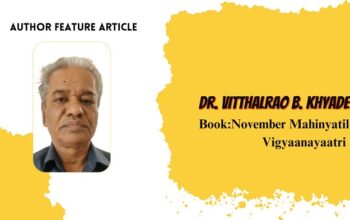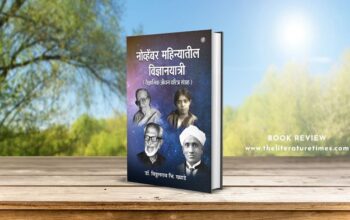In Deep Mind and Whispers of Eternity, Pankaj Sudan presents a deeply reflective and idiosyncratic narrative that blends the raw honesty of memoir with philosophical inquiry and spiritual musings. At once humorous, poignant, and occasionally cryptic, the book seeks to illuminate the vast and often bewildering path of self-knowing. It doesn’t offer a linear guidebook for spiritual progress, nor does it claim to hold answers to life’s deeper mysteries. Instead, it gently invites the reader to pay attention—to words, to silences, to subtle cues—and to discover what may already lie dormant within.
From the outset, it’s clear that Sudan’s intention is not to preach or to impress with spiritual authority. Rather, he writes from the perspective of a fellow seeker, one who has wandered into both light and darkness, who has climbed literal and metaphorical mountains, and who has learned to laugh at the absurdities of the spiritual journey. This humility gives the book an immediacy and sincerity often missing in more dogmatic spiritual texts. There is an unmistakable sense that the author is attempting to communicate something very real, very personal, and very essential—but doing so in a way that respects the reader’s own inner process.
The title itself—Deep Mind and Whispers of Eternity—is an apt encapsulation of the book’s essence. The “deep mind” implies not only the subconscious or hidden parts of the psyche but also the contemplative, introspective awareness that is essential for genuine spiritual practice. The “whispers of eternity,” meanwhile, evoke the elusive, often intangible nature of spiritual insight—those subtle flashes of understanding or presence that defy articulation. Much of the book exists in the tension between these two realms: the grounded, often chaotic human mind, and the fleeting contact with something far greater, beyond comprehension.
What sets this work apart from more conventional spiritual literature is its form and style. Rather than a cohesive, chaptered narrative, Sudan offers what he calls “random memoirs”—fragmented reflections, anecdotes, observations, and poetic interludes that resist easy categorization. This non-linear structure mirrors the spiritual path itself, which rarely unfolds in a straight line. For readers accustomed to more structured texts, this approach might initially feel disorienting. But for those willing to surrender to the book’s rhythm, the reward is a reading experience that feels alive and organic, as if the book itself were a conversation with the ineffable.
Sudan’s life journey, as described in the biographical notes, is itself a testament to the book’s themes. From a young aspirant who left for the Himalayas in search of truth, to a committed member of the Ramakrishna Mission, to an educator and parapsychologist, his path has clearly been one of exploration and experimentation. His decades of conducting free meditation sessions and his poetic sensibility both find expression in his prose, which alternates between grounded realism and soaring mysticism. There is a refreshing lack of pretension in his tone—even when discussing profound experiences or complex metaphysical ideas, he maintains a sense of humor and humility.
One of the book’s strengths lies in its use of “parallel clues.” Rather than spoon-feeding the reader insights or step-by-step instructions, Sudan drops breadcrumbs—philosophical hints, allegorical suggestions, psychological observations—that the attentive reader can pick up and follow. This method demands a certain level of engagement and mental clarity from the reader. Those seeking direct answers or simple techniques may be frustrated, but those who appreciate metaphor, nuance, and layered meaning will find much to ponder. The book becomes a mirror, reflecting back to the reader their own level of readiness and receptivity.
It is also notable how the author weaves humor into his spiritual reflections. Spiritual literature often suffers from an over-serious tone, but Sudan skillfully punctuates moments of depth with levity, reminding us that laughter too is sacred. This balance adds to the authenticity of his voice—he does not attempt to appear as a perfect master, but rather as a human being with flaws, confusion, and joy. This relatability is one of the book’s most endearing qualities.
While much of the book avoids rigid philosophical systems, it is deeply rooted in the Indian spiritual tradition. References to Advaita Vedanta, Ramakrishna Paramhansa, meditation, and other elements of Eastern spirituality are present, but never in a doctrinaire way. Sudan’s perspective is expansive and inclusive; he seems more interested in the inner experience of truth than in debating dogma. This ecumenical spirit allows the book to resonate with seekers from a wide range of backgrounds.
That said, the book’s elliptical style and abstract reflections may not appeal to every reader. There are moments where the prose veers into the cryptic or opaque, and some passages require re-reading to fully appreciate their depth. For those unfamiliar with the vocabulary or inner logic of the spiritual path, certain sections may feel alienating. Yet, this is perhaps intentional—Sudan does not dilute the mystery in order to make it palatable. Instead, he respects the reader’s intelligence and capacity to grapple with ambiguity.
Poetic, paradoxical, and sometimes puzzling, Deep Mind and Whispers of Eternity occupies a unique space in the genre of spiritual writing. It is not a book that reveals its treasures easily or all at once. Like the process of self-discovery it describes, it unfolds gradually, offering different insights depending on where the reader stands. In this way, it is a book that can be returned to again and again, each reading yielding new revelations.
Ultimately, Pankaj Sudan’s work stands as an invitation—a gentle yet persistent call to look within, to listen closely, and to follow the whispers that rise from the depths of one’s own being. It is not a map, but a companion. Not a sermon, but a song. And for those who are willing to pause and truly listen, it may offer exactly what is needed at the right moment—a fleeting glimpse of eternity behind the veil of thought.



